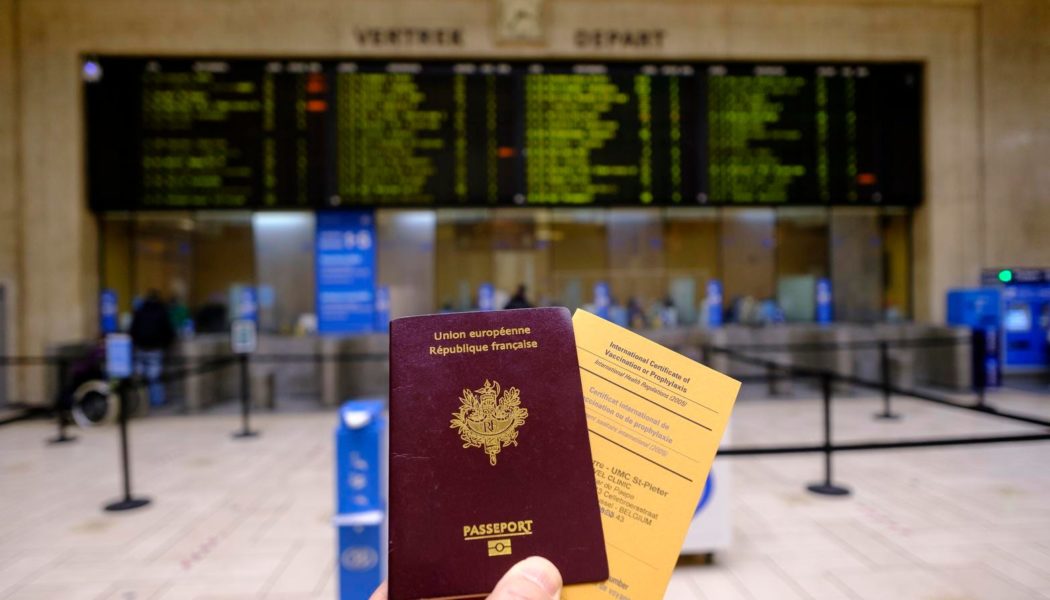
In February, an Australian tourist was detained at Ngurah Rai International Airport in Bali, Indonesia, and held for questioning by immigration officers.
The reason? A thumbnail-sized tear in his passport.
After reading a statement that acknowledged that his passport was “of poor quality and/or a fake,” the tourist was eventually allowed into Bali.
But the incident raises an important point: while you might be ready for international travel, your passport might not be.
Indonesia has some of the strictest passport laws in the world.
It expects your passport to be in near-perfect condition, with no tears, stains, or water damage. In some cases, it will even fine airlines up to US$5,000 if they allow passengers with faulty passports to travel.
Indonesia is an extreme case, but it’s not the only country with these types of laws. And the best way to avoid expensive mistakes is to be informed of potential passport pitfalls well before taking a trip.
Here are a few things you need to know about your passport before you take a trip.
Is Your Passport In Good Condition?
Do a quality control check on your passport to make sure it’s in good working condition, especially if it’s been gathering dust during the past three years of the pandemic.
These Are The Main Things To Look Out For:
- Is there any obvious damage? Are any pages torn, cut, detached, stained, water-damaged, moldy, etc.?
- Are your passport details decipherable?
- Is the biodata page in good condition? Is there any discoloration? Any damage to the lamination?
- If it’s an e-passport, is the chip exposed or damaged?
A bit of wear and tear should be expected, but unfortunately, every country has a different definition of how much wear and tear is acceptable.
Best practice is to keep your passport in as perfect a condition as possible and brush up on the rules and any precedents for rejection that are in place in the country you plan on visiting.
If your passport isn’t in good condition, you’ll need to renew it before your trip at your own expense.
When Was It Issued And When Does It Expire?
You need to be aware of your passport’s issue and expiration dates, as well as the passport validity requirements of the country you plan on visiting.
To visit the EU, for instance, your passport needs to have been issued in the last 10 years. It can’t be due to expire until three months after you’ve exited the EU.
Some places, like Australia, Mexico, Japan, and Barbados, only ask that your passport be valid for the duration of your stay, while others, like Egypt, Singapore, and Thailand, require six months of passport validity.
Passport validity requirements vary from country to country, but assuming that all countries require one year of validity before expiration is a good rule of thumb.
If you have the choice when applying for or renewing your passport, it’s best to opt for 10 years of validity. It just means that the issue and expiry dates are things you have to think about less often.
U.S. passports are generally valid for 10 years at a time. With Canadian passports, you have the choice between a 5- or 10-year validity period.
How Many Blank Pages Do You Have Left?
Make sure you have enough blank space or empty pages in your passport before you head out, especially if you plan on visiting multiple countries in one trip.
At minimum, you need enough blank space to receive immigration entry and exit stamps, assuming you’re just visiting one country.
If you’re visiting a country that issues visas on arrival, like Vietnam, be prepared for them to take up an entire page of your passport with the visa sticker.
Different countries have different rules about how many blank pages your passport needs to have for you to be allowed to visit. For most places, it’s one, but some countries, like Namibia and Brunei, for example, require six blank pages.
In the past, immigration officers may have just stamped over old stamps, but with ever-stricter regulations and controls, this is less likely in 2023. If you run out of blank pages, you’ll have to renew your passport early, again, at your own expense.
When you apply for or renew your passport, opt for the maximum number of pages possible if given the choice.
The standard U.S. passport has 28 pages, 17 of which are blank for immigration stamps, but you can also apply for a 52-page passport with 43 blank pages at no additional cost.
Canada used to give you the option of choosing how many pages you wanted in your passport, but now, all Canadian passports have 36 pages.
What Stamps Does Your Passport Currently Have?
Your travel history can affect your ability to visit a country. A passport stamp from one country may prevent you from entering another if the two countries are on bad terms.
For example, if you have an Israeli stamp in your passport, you can’t travel to certain Middle Eastern countries, like Lebanon or Kuwait, among others. Even a luggage tag or sticker with evidence of having been to Israel can cause problems.
On the flipside, if you’ve been to certain Middle Eastern countries, you may face increased scrutiny at immigration when you try to visit Israel.
A visit to Cuba can affect a non-American or Canadian’s ability to qualify for ETSA. If you’ve been to Cuba since March 1, 2011, you’re disqualified for ETSA and need to apply for a full visa (at a much higher cost than ETSA and including an in-person interview) instead.
Other Things About Your Passport You Should Consider
- Is your passport scannable? Depending on how old your passport is, it may be a regular passport or an e-passport. The latter contains a chip that stores your personal information (name, date of birth, etc.) and can be scanned at certain border-control points, helping you save time at immigration. You’ll know if you have an e-passport because you’ll have a small rectangular icon at the bottom of the front cover of your passport.
- Did you get your passport back? It might sound obvious, but if you’re travel-weary and shuffling many documents around, you could easily walk away from the immigration kiosk without your passport in hand.
- How many days are you staying, and what areas of the country are you visiting? Immigration officers may fill in your passport stamp with the number of days you intend to stay in the country, meaning the stamp has a limited validity. It’s best to tell the immigration officer that you’ll be staying for the maximum number of days a tourist visa allows. If you’re visiting multiple territories within the same country (like the Ecuador mainland and the Galápagos Islands, for instance), make sure you include time spent in those territories when you quote how long you’re staying to the immigration officer.
- Do you have an emergency or temporary passport? If you lose your passport while abroad, you can usually be issued an emergency passport at the nearest consulate. In Canada’s case, a temporary passport is valid for one year, and in the United States’ case, only six months. Don’t try to plan long, multi-trip journeys on emergency or temporary passports.
Your reason for traveling could be another unexpected reason why you might be denied entry at immigration. If you say that you’re visiting to speak at a conference, for instance, but are trying to enter the country on a tourist visa instead of a business visa, you could be denied entry.
Not carrying cash is another reason you could be turned away at immigration. Some countries require you to pay for a visa on arrival, and in some cases, you have to pay in cash. Vietnam, for instance, requires its stamping fee, which can range from US$25 to US$135, to be paid in cash.









